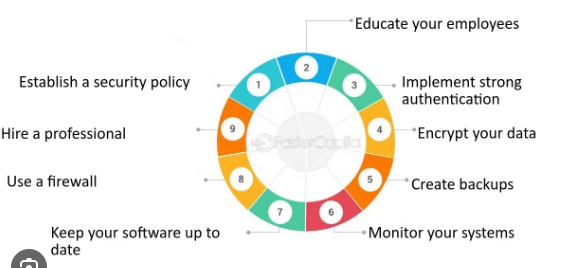Small businesses are frequent targets for cybercriminals due to the common misconception that they don’t need as robust a cybersecurity strategy as larger organizations. However, the fact is that small businesses need to be equally vigilant about their online security as their larger counterparts.
With that, explore four essential cybersecurity strategies to use for your small business. This includes risk assessment, education, limiting access, and developing strong password policies. Read on to learn how any business owner can safeguard their company’s sensitive data and overall system.
Assess Your Current Level of Risk
Before you can implement any security strategy, it’s crucial to assess your business’s current level of cybersecurity risk. This involves identifying the different types of data you handle, such as customer information, financial data, and intellectual property, as well as the vulnerability of your systems to cyberattacks.
A comprehensive risk assessment should be the first step in crafting an effective cybersecurity strategy. It will help you understand the extent of the threats your business faces and prioritize your security efforts accordingly.
Educate Your Team on the Latest Updates
Keeping your team up to date on the latest cybersecurity threats and best practices is also of the utmost importance. Human error accounts for many data breaches, so educating your employees about potential risks is essential. It is essentiak for maintaining your company’s cybersecurity.
One area to focus on is the latest updates to ISO 27001, which is a set of best practices to help organizations manage and protect their information assets. Familiarizing your team with the International Organization for Standardization standards is crucial in ensuring your company’s data security. Regular training sessions and workshops should be held within your organization to educate your employees on these critical updates.
Limit Access to Certain Data
Another effective cybersecurity strategy to use for your small business is to limit data access depending on the team member. Not all employees need to search through every piece of sensitive information within your organization. Limiting access to certain data can significantly reduce the risk of unauthorized users or hackers gaining access to your critical information. With that, make sure you brush up on how to limit and unlock access to specific PDFs to maximize your overall security.
By implementing access control measures, you can create a barrier between your sensitive data and potential cyber threats. Ensure that you frequently review and update access levels, so only relevant personnel can access sensitive information.
Create a Strong Password Policy
A strong password policy is vital in maintaining your company’s cybersecurity. Require your employees to create complex, unique passwords that include a mix of uppercase and lowercase letters, numbers, and special characters. It’s essential to change passwords regularly and avoid reusing the same password for multiple accounts. Implementing (MFA) can also greatly enhance your company’s security, making it more difficult for hackers to access your accounts and systems.
Protecting your small business from the ever-growing number of cyber threats entering. The digital landscape requires diligence, proper planning, and effective techniques. By using these cybersecurity strategies in your small business, you can rest assured that your company is better prepared to tackle the evolving world of cyber threats.



Comment here